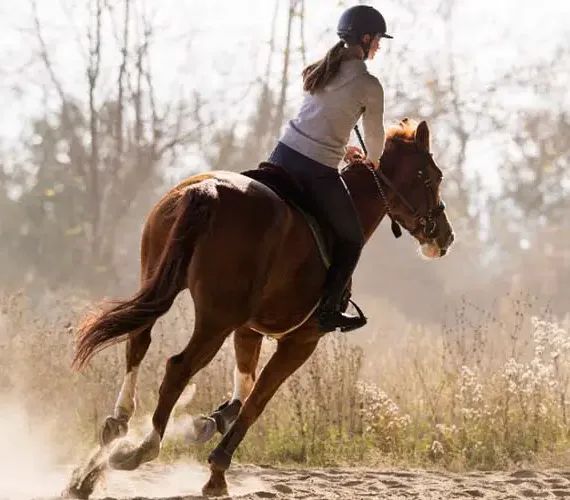
Tapp v Australian Bushmen’s Campdraft & Rodeo Association Limited [2022] HCA 11
In the matter of Tapp v Australian Bushmen’s Campdraft & Rodeo Association Limited, the majority of the High Court provided guidance as to the way that Section 5L (obvious risk of dangerous recreational activities) of the Civil Liability Act, 2002 should be applied. In particular the degree of precision with which a risk is to be stated in deciding whether or not it is “obvious”.
Facts
The Plaintiff who was 19 years old at the time and members of her family were involved in a camp drafting competition. During the course of the competition, the Plaintiff was injured when her horse’s front leg slid out from underneath it and as a result of the horse falling the Plaintiff has being severely injured and rendered a paraplegic.
The Plaintiff’s case was that her horse fell because of a deterioration in the surface of the arena in which the competition was being held. The Plaintiff alleged that the Association (i.e. the Defendant), breached its duty of care to take reasonable care for her safety in allowing the event to continue in the circumstances. The association admitted that they owed the plaintiff a duty of care to organise, manage and provide a camp drafting event with reasonable care and skill, but denied they had breached their duty.
The evidence was that there were usually no falls at a campdrafting events. On the day of the Plaintiff’s accident, in the hour before it occurred, there were four falls, three of which were considered to be “bad falls” which were “signals” that there was something amiss with the arena surface. Witness evidence was provided that the organising committee were advised of the falls.
The Defendant maintained it had not breached its duty of care to the Plaintiff and relied upon Section 5L of the CLA, that is the Plaintiff’s injury arose from the materialisation of an obvious risk of a dangerous recreational activity
Decision
There was no dispute that the Plaintiff was engaged in a dangerous recreational activity, i.e. camp drafting. The question was whether what occurred represented the materialisation of an obvious risk.
The Plaintiff was unsuccessful at first instance in the NSW District Court and also subsequently on appeal in the NSW Court of Appeal. The Plaintiff appealed to the High Court.
The decision of the majority of the High Court found that the NSW District Court and NSW Court of Appeal had incorrectly characterised the risk in these circumstances. In particular the majority of the High Court indicated difficulty with the approach taken by the NSW District Court and NSW Court of Appeal requiring the Plaintiff to identify the risk by reference to the precise manner in which her injuries were sustained which was inconsistent with the requirements of the CLA.
The majority of the High Court found that when the risk in this instance was identified at the correct level of generality, the Plaintiff’s case became a strong one. The majority of the High Court found the risk should be characterised as the substantially elevated risk of physical injury by falling from a horse that slips by reason of the deterioration of the surface of the arena. Consequently, the majority of the High Court found that the prior falls and complaints by experienced riders were evidence that the surface of the arena had deteriorated to the point where it was dangerous.
Additionally, the majority of the High Court found that the event should have been stopped and that there was no evidence of any “informed decision” on the part of the Defendant to continue the event after a detailed inspection of the arena. The Court therefore found that the Defendant breached its duty of care and failed to stop the competition in order to inspect the ground to make an informed decision as whether it was safe to continue with the competition.
If you have suffered injury whilst participating in a recreational activity we recommend you contact us for our advice on compensation you may be entitled to receive.

